Optimize Your Pages
On-Page SEO
Optimizing the various aspects of a webpage is an integral part of your On-Page SEO and an important factor in your overall website search ranking.

Page Optimization
Optimized pages lead to a healthy website.
Trying to get a specific page on your website to rank high in search engines? That's where On-Page SEO can play a big part. This type of SEO requires that you make specific optimizations to specific pages on your website to get them ranking for the specific keywords you're targeting. As you can tell, specificity is what it's all about. And this work requires a tremendous amount of research, analysis and execution to make a meaningful impact on your search rankings. As part of our standard SEO services, we'll do all the planning and legwork for On-Page SEO to ensure your web pages are optimized to rank for those specific keywords that generate the most traffic and matter most to your business.
Metadata
Page Titles & Heading Tags
Descriptions & Interlinking
What is Metadata?
Giving Google the inside scoop.
We all know that the content (text, images, video, etc.) on any given page is considered the most important factor for ranking in search engines. But the metadata can sometimes be even more important, as a web page will never capture the coveted top ranking in search results without a proper foundation. But why is it so important? Well, this information provides search engines with a brief synopsis or overview of the page their crawling. This information also shows up in search results, so having data that is unique and engaging is crucial to generating clicks. Some of the most important components for On-Page SEO are title tags, meta descriptions, heading tags, URL structure, interlinking and image alt text. Sound like a lot? Our team makes it easy with advanced software and an experienced team to get it done quickly and efficiently.


The Meta Breakdown

Page Titles
A good starting point for On-Page SEO is the title tag. Only a few words in length, it should clearly identify your focus keyword for that specific page. For instance, if you have a web page that explains how your business works on foreign cars, then using a title tag like "Foreign Car Repair" might make the most sense. Most websites also like to add their business name at the end of each title tag, so it will probably end up looking something like "Foreign Auto Repair - Your Business Name."

Meta Descriptions
The meta description serves as a slightly lengthier way to communicate to visitors and search engines the specific content on a page. It typically consists of a few sentences that encompass the general content or emphasis of a page. It should also be engaging to a visitor, as this bit of data (along with the title tags) are what appears in search results. For example, it might start with something like "Our business specializes in auto repair for all foreign makes and models."

Heading Tags
Headings appear above each piece of content (paragraphs or bullet points). From H1 to H6, we'll review your website and optimize heading tags by formatting each one in the proper hierarchy and architecture for that specific page. With proper placement of heading tags, bounce rate decreases as visitors quickly confirm they're about to view relevant content. We'll ensure that the flow of information reads properly all pages to increase time on site, which improves the long-term ranking of your search terms.

URL Structure
Arguably the single most important aspect of SEO is the URL. Again, specificity is the name of the game here, as the optimal length of a URL should never be more than 5 or 6 words in most cases. We'll help identify the specific keywords that have the best chance of getting your web page to rank and create optimized URL's for every page on your website. Performing this task incorrectly can be detrimental to your website and requires a skillful professional to ensure the right words and structure is used.

Interlinking
Now that your content is all set up, it's time to make sure your new page interlinks with the rest of your website. This simply means that there are internal links entering and exiting the page. But it's important that these links make sense to the navigation and flow of your website, so careful planning on consideration should be used for every internal link. We make sure all these links make sense to the visitor and search engines to achieve the best results.

Image Alt Text
Have you ever been on a website where an image doesn't load? That's where image alt text comes in, as it serves as "alternate text" when an image isn't able to load properly. It also communicates to Google what the image is depicting. The process of adding alt text can be overwhelming, which is why we make sure it's done the right way from the start. This includes an audit of all images to add alt text where it's missing and improve any existing alt text with focus keywords or more accurate descriptions.

